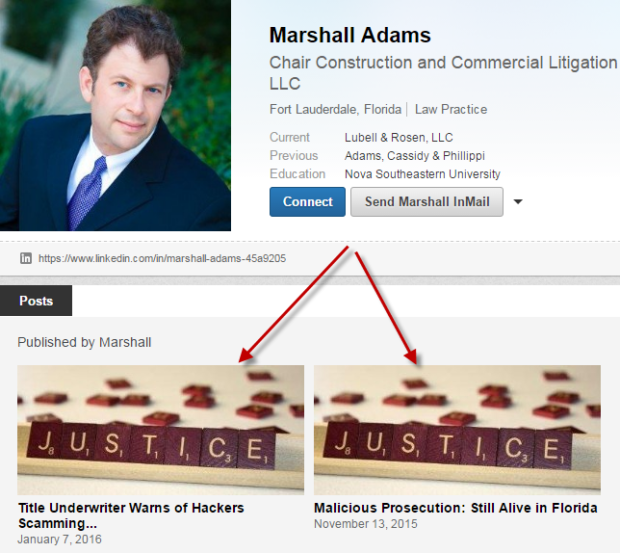Keep It Simple: Your Law Blog Should Be on Your Firm’s Domain

A common question we receive from attorneys who are just getting started with their blogging efforts is whether they should host the blog on the firm’s domain or on a separate domain.
For example, imagine there’s a Cincinnati-based law firm called Thomas & Jones Law, and the firm’s website URL is www.thomasjonescincy.com. The attorneys may wonder if they should host their blog at www.thomasjonescincy.com/blog or create a new website altogether — something like www.cincylawblog.com.
This is an understandable question. It’s reasonable to believe that creating multiple websites could expand your firm’s digital footprint. But in almost every situation, the answer is the same: keep the blog as part of your main website.
By creating a new domain just for your blog, you are essentially creating an entirely new website. This means you’ll have two URLs that you will need to market and that your customers and online followers will need to remember. This could cause confusion that you can easily avoid by hosting your blog on your firm’s site instead. In addition, these two domains will now be competing against each other for positioning in the search results.
Ultimately, your blog is a marketing tool designed to increase conversions and get more new clients through your door. It positions you as a thought leader in your field and has numerous search engine optimization (SEO) benefits to improve the search rankings of your site and web pages.
Alternatives to creating a separate site for your blog
Still, you might be wondering what steps you can take to grow your digital footprint and bring in traffic via new channels. There are plenty of ways you can market your blog and your legal knowledge without having to create an entirely new website. The following are a few tips:
- Post links to your blog content on social media: If your firm has a presence on Facebook, LinkedIn or Twitter (and it really should), make sure to post links to your blog posts every time you publish new content. Your web platform likely allows you to link your social media accounts to your blog so that your social media channels automatically post a link every time you publish a post. What follows is an example of this from an Immigration Law website.
- Post full blog posts to LinkedIn and other platforms: LinkedIn, Medium and numerous other platforms have article publishing tools, allowing you to publish content that reaches people in new ways. You can either create content specifically for these sites to get people interested in your blog content or post samples of some of the content already on your website. Both strategies enable you to promote your blog and give you another opportunity to connect with potential clients.
- Place previews of your recent posts on your homepage: When visitors come to your site, give them a taste of the content you’re providing through your blog. This will focus more attention to your blog content and give visitors a chance to see your thought leadership in your area(s) of practice.
Although we recommend hosting your blog on the same domain as your firm’s main website, there are plenty of other opportunities to share your knowledge online — especially with the members of your target audience. Be sure to explore all the options to outpace your competition when it comes to digital marketing.












